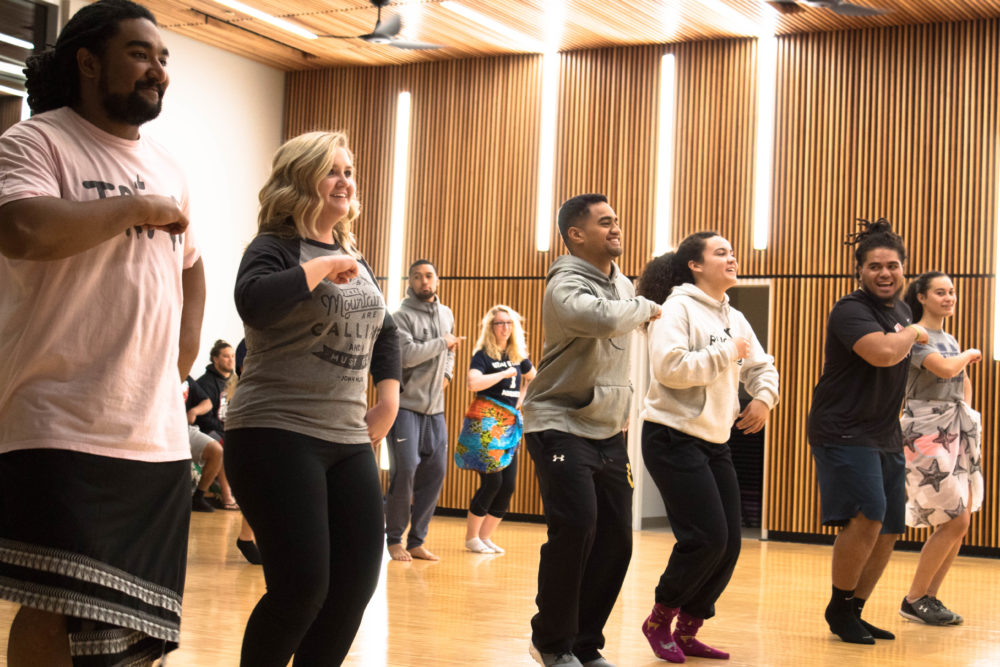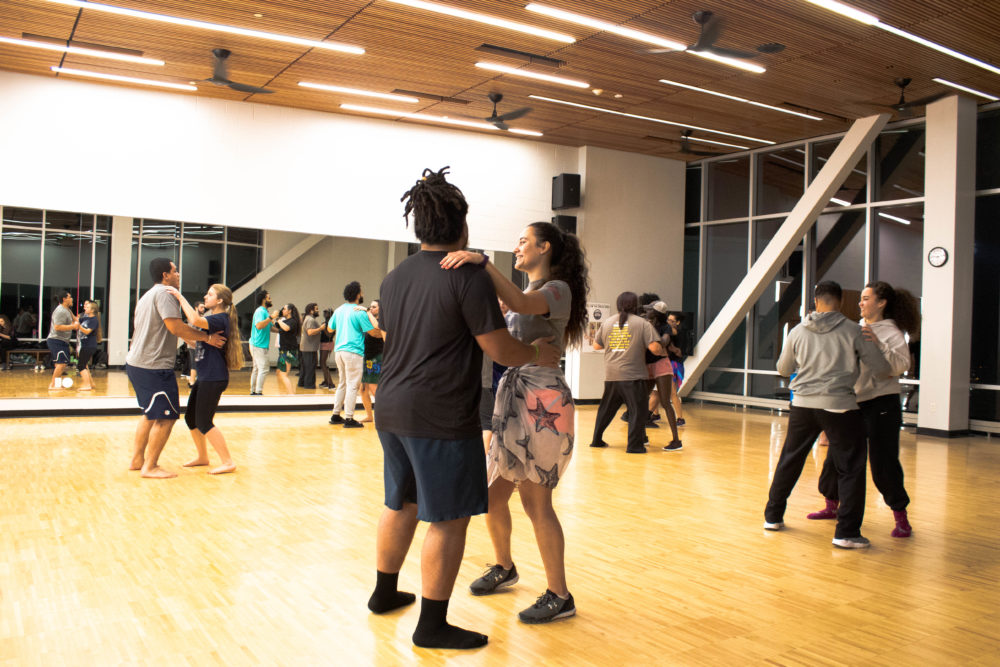Access and Diversity Center spotlight: Polynesian Student Union
Two and a half years ago, Anna Afoa was intrigued with the Polynesian families she came across grilling teriyaki chicken and roasting a pig on the TSC Patio.
When she went to get in on the action, she found out it was for the Polynesian Student Union’s annual Luau. She began helping out with the cooking, and from there found a home within PSU.
The Polynesian student union is a student-run organization focused on sharing the Polynesian culture with USU and the surrounding communities. They focus on bridging the gap between polynesians and higher education and providing leadership for the Polynesian community, according to Afoa.
Afoa currently serves as the president of PSU. For PSU this year, some of their goals have included reaching out to learn about other cultures so that they in turn could find common ground to be able to share their Polynesian culture.
“Our activities focus on educating ourselves and others about our Polynesian culture through various of expression such as telling our stories through music, food and dance,” Afoa said.
 Cameo Tamala
Cameo Tamala Jordan Risley, Hailey Tobler, Tipa Galeai, Karlie Jordan, Daniel Langi, Jayne Taufoou, Christopher ‘Unga II, and Kiora Hopkins dancing at the PSU (Polynesian Srudent Union) dance practice preparing for the Luau in April. Feb 6, 2018. Logan, UT.
Crystal Solvien became involved with PSU through some of her friends from her home state of Hawaii who are also at Utah State. She wanted to get involved as a new student and had a desire to meet new people.
“I made new friends that weren’t only great people, but individuals who also shared a great appreciation of the Polynesian culture,” Solvien said. “It’s kind of like a family away from home.”
Solvien is full Filipino and says she has taken in the culture as her own.
“I wish other students knew that the Polynesian student union is not just a club for students that are Polynesian, but for anyone interested in learning about the culture,” Solvien said.
She enjoys associating with people who love and appreciate the Polynesian culture.
“I myself learn new things from my club members,” Solvien said.
Kiora Hopkins enjoys the spring luau that happens every year. This year’s luau took place April 19, and featured a dinner and a performance.
“I love meeting so many people through all the activities and events that we participate in,” Hopkins said.
Afoa has a hope that other students will take the time to learn more about the Polynesian culture, and all that it has to offer.
“Polynesian students pursuing different majors can contribute to the representation of polynesian culture that is often misrepresented,” Afoa said. “PSU members can take home the values of unity, respect, diligence and the spirit of aloha, alofa or love of family. Our PSU family.”
Afoa said Polynesian culture is something that cannot be fully understood in textbooks, history, movies and more. Her favorite part of being a member of PSU is dancing the different styles of traditional polynesian dances.
 Cameo Tamala
Cameo Tamala PSU (Polynesian Student Union) club at USU practicing their dances for the Luau coming up in a couple months. Feb 6, 2018. Logan, UT.
“Every time I dance, I feel like I’m not only sharing a part of who I am, but am also creating a positive atmosphere that could soothe the soul and lighten the stresses, even if it’s just for a little while,” Afoa said.
Solvien encourages anyone and everyone who might be interested in the Polynesian student union to come to their activities.
“Come meet and join the PSU family,” Solvien said. “Whether you are looking to learn how to dance the Polynesian dance, or if you like decorations and crafts and want to have a fun time, just come. There is something for everyone.”
Afoa said that the journey of finding a place in PSU is an individual one, one that each person should find out individually.
“Being a part of our PSU family means one is determined to open their mind and heart to the lives of a group of people, not the idea of the way of life they are associated with that some call paradise,” Afoa said. “The reason is not given to you, It is for you to find out for yourself.”
— kortni.marie.wells@aggiemail.usu.edu
@kortniwells

